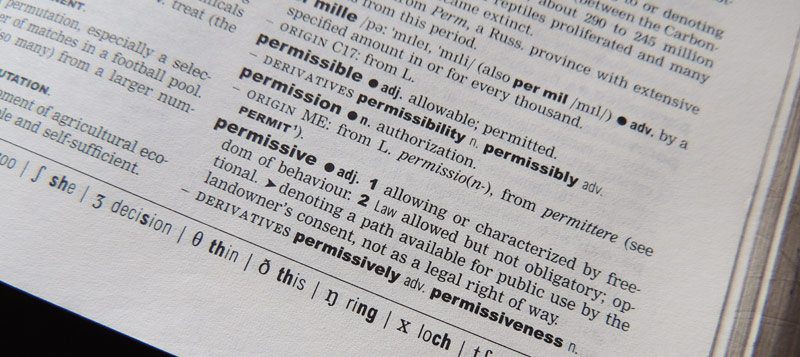Giving Yourself Permission To Innovate Wildly

Recently, I heard the expression ”permission to innovate wildly” and for the last week it has percolated endlessly in my head. I decided to do what I usually do when I need a little help in focusing my thoughts. I went to my friend and all-knowing source, Merriam-Webster.
Permission: the right or ability to do something that is given by someone who has the power to decide if it will be allowed or permitted
Innovate: to do something in a new way; to have new ideas about how something can be done
Wildly: in an uncontrolled or excited way
That’s all well and good, but just a little dry for me. Let’s peel the onion back further, shall we?
Permission means to allow something to happen. What gives you permission to innovate wildly? For me, personally, it is important to be appreciated and free of judgment. If I can’t be appreciated for those “crazy Kay thoughts” or if I feel criticism or judgment along the way, I am much more cautious and hesitant. Cautious and hesitant doesn’t seem to go with “permission to innovate wildly”. Perhaps students feel the same way? Is it possible to feel free to creatively express yourself if you know a grade is the end result?
Innovate means to do something in a new way. New ideas are hard to achieve. Over the last few years, I have heard, “You are so creative. I am not.” I take pride in hearing this from others. I cherish the words because in my elementary years, I remember my art teacher telling me, “Don’t worry. You just aren’t creative.”
She didn’t realize what an impact that statement made on me. I believed her for many, many years. Slowly, I started to find my creative self. Now, I glow a little when someone tells me I am creative because I realize everyone is creative. Some people just haven’t realized it yet.
Creative Learning
Being creative is a particularly interesting topic for to me. I try to read every article that crosses my path. There were three takeaways for me in this article from Gregory Ciotti, titled “Nine of the Best Ways to Boost Creative Thinking”. Forcing yourself to do less was a suggestion from the article, stating, “Research suggests that placing self-imposed limitations can boost creativity because it forces even creative people to work outside of their comfort zones.”
The example of completing a form with a limited number of characters or words comes to mind. You choose those words carefully and purposefully to create the most powerful message possible. Another suggestion was to occasionally bring the absurd into your life. The article shared, “The mind is always seeking to make sense of the things that it sees, and surreal/absurd art puts the mind in “overdrive” for a short period while it tries to work out just exactly what it is looking at or reading.”
The third takeaway I received was the obvious tip of physical activity, but one we all need to hear repeatedly. Exercising, according to the article can, “actually boost creative thinking due to it’s ability to get the heart pumping and put people in a positive mood.” I encourage you to read the article for the other six ways to boost your creativity.
Lastly, the word wildly means in an excited way. This is a big piece of the creative process. If there is no excitement, there is no energy and no innovation or new ideas. If there is no excitement, it is difficult to find anything interesting enough to stick with it.
TeachThought, USA

PROFILE
TeachThought is an idea and brand dedicated to innovation in K-12 education. This is pursued by growing teaching through thought leadership, professional development, resource curation, curriculum development, podcast publishing, and collaboration with organizations around the world.
TeachThought’s mission is to innovate education through the growth of innovative teachers.
